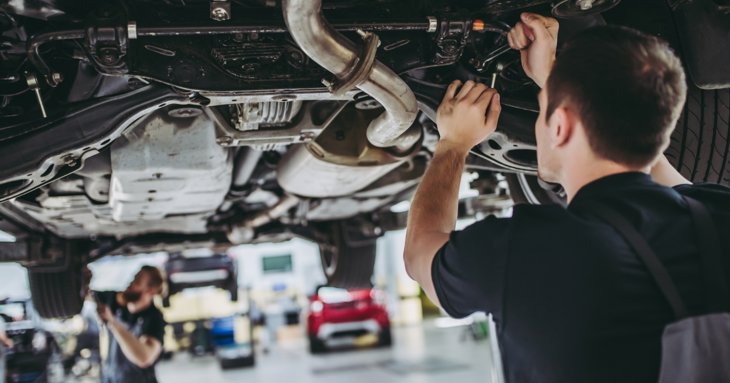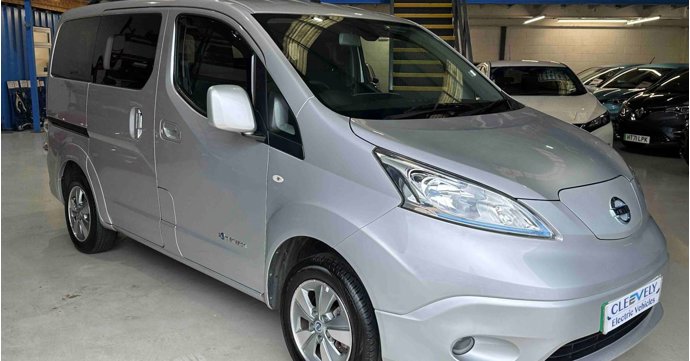When it comes to servicing your vehicle, you want a good job done at a good price - but sometimes the two don't come together.
SoGlos caught up with owner of Cleevely EV and Cleevely Motors, Matt Cleevely to learn more about good servicing practice and the difference between regular vehicles and electric vehicles.
Is there anything you’d like to highlight about servicing that drivers often don’t realise?
As an experienced technician of 26 years, I have been very frustrated by misinformation spread by main dealers regarding servicing.
The manufacturer's representatives will inform owners the vehicle must return to them for servicing in order to maintain the manufacturers warranty, but this isn’t true, regardless of fuel-type.
The vehicle aftermarket operates under right-to-repair regulations, backed-up by Block Exemption legislation that allows the vehicle owner to choose where their vehicle is serviced and by who.
As long as the company is VAT registered and uses original equipment specification parts, they can carry out the servicing and any repairs.
An independent garage won’t get paid for warranty repairs, but can flag them for the vehicle to be booked in with a main dealer and be done for free.
Servicing within the aftermarket by trusted, quality, independent workshops is cheaper and in my opinion, largely better quality. That's because independents have a vested interest to uphold and maintain their reputations.
If you're considering moving to the increasingly popular electric vehicle market, are they cheaper and faster to service than regular cars?
Electric vehicles have cheaper servicing than internal combustion engine (ICE) equivalents because they have less serviceable items.
They still have service requirements, as they have moving and wearing parts, but a lot fewer than an ICE vehicle.
Electric vehicles contain a small amount of oil within the drive unit, which should be replaced at regular intervals, but not annually.
EV servicing focuses on steering, suspension, tyres, brakes, lights, levels and numerous other tests to ensure reliability and efficiency.
An MOT test, which EVs still need to have annually at three years onwards, is the same as an ICE vehicle, just without an emissions test.
It's important to note that an MOT is a basic inspection, at minimum safety standards, and should never replace an inspection service by knowledgeable technicians.
How long do the batteries in electric vehicles typically last before they need replacing?
Batteries are lasting longer than first expected. Nissan, which brought out one of the first battery electric vehicles, has reported lower than expected battery degradation.
We have seen vehicles over 10 years old with 75-80 per cent battery state-of-health, meaning degradation annually of two to three per cent, which is very good.
It becomes a talking point because it is measurable, but engines degrade too, which is never discussed or easily measured.
We have repaired some batteries that have failed due to individual cell problems. We always do our best to repair at a modular level, which means lower cost to our customer.
Which EV parts typically need replacing – are they different to regular cars?
Having repaired and maintained EVs for the last five years, we have a good idea of the kind of components that require replacing the most.
EVs are quite heavy, so suspension components can wear slightly quicker than the ICE alternative, but not a dramatic amount.
We are also finding that due to regenerative braking, where energy is recovered and the car will slow because the electric motor turns into a generator, physical brake wear is less, but equally brake components can corrode due to lack of use.
Off the back of the data we have collected, we have created our own EV specific parts department, stocked with various lines for all makes and models, so that we can keep our customers on the road as safely as possible using quality components.
Are the servicing intervals longer for EVs?
As with any vehicle, annual servicing is always recommended. Some manufacturers run two year servicing, but my personal opinion is that vehicles, regardless of fuel type, should have a trained inspection annually to ensure reliability and safety.
People struggle for time in busy lives and I’m guilty of it too, where remembering to check vital fluid levels and tyre pressures gets forgotten.
A lower than spec tyre pressure can drastically affect vehicle road-holding, braking distances and efficiency.
Servicing doesn’t have to be expensive and most quality garages will openly discuss vehicle requirements with customers to ensure that expectation levels are known by everyone.
Is EV servicing better for the environment?
EV servicing does offer a benefit to the environment, in a small way.
Without regular high volume oil changes, there is less reliance on fossil materials being produced.
Our daily servicing of ICE vehicles means we have to dispose of more than 6,000 litres of dirty engine oil annually and therefore refill with a similar amount too - the production of which has a huge environmental impact.
Correctly inflated tyres reduce wear and production of harmful particles into the air we breathe. This is true for correctly serviced brakes too, as brake dust is also harmful to breathe in.
Regular maintenance will allow any vehicle to be more efficient, therefore require less fuel, whether that is electric or fossil.





















